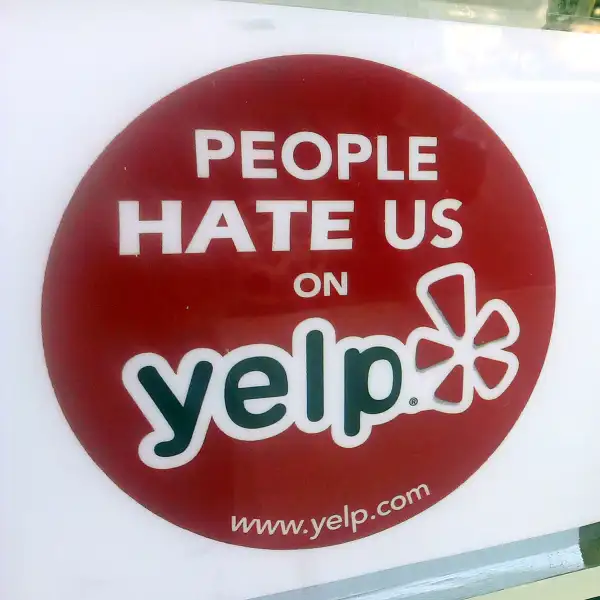Restaurant Tries to Undermine Yelp in a Way You Won't Believe

Botto Bistro, an Italian pizza-and-pasta establishment in the San Francisco Bay area (Richmond, to be specific), has a 4.6-star rating on Google reviews, while its Yelp rating is a mere two stars. Oddly enough, the bistro's owners are doing everything they can to get its Yelp rating even lower.
This week, the Richmond Standard and other area news sources reported that Botto Bistro has launched a "Hate Us on Yelp" campaign, in which customers get 25% off on pizzas in exchange for giving the restaurant a one-star review on Yelp. Ideally, the review will be heavy on snark and sarcasm.
"At the end of the month we will share the most funny and sarcastic review with the 10,000 followers in our newsletter and we will reward the winner with a FREE TICKET for one of our cooking classes!" a note on the Botto Bistro website explains. "If you hate us already you'll do it for free, if you love us, now is the time to hate us a little."
Customers have chimed in with complaints about the restaurant such as, "I mean it tastes nothing like Domino’s or Little Caesar’s.” The one one-star review continues, tongue in cheek, “True Italian food comes from great American food establishments like Olive Garden.”
Why would a business want to encourage customers to bash its online ratings, even as a joke? “I want to be the worst restaurant there is in the Bay Area,” co-owner Davide Cerretini explained to one San Francisco food blog. “I think this is the best business move I have made in years.”
Huh?
Clearly, the restaurant's owners have an odd sense of humor. And clearly, they're not fans of Yelp. Cerretini said that he got tired of constantly being asked by Yelp to advertise on the site, and Botto Bistro, like many businesses, doesn't like Yelp's practice of showing ads above the search results for companies if they advertise, a system Cerretini described as "blackmailing." The owners also say that they simply do not care about online reviews, nor do they care about the (presumably dumb and untrustworthy) diners who write them—some of whom are featured in the bistro's "Village Idiot" section. "The day that we think that reviews on Yelp are the key for our successful business, is the day we should change business," the restaurant's FAQ page explains. "We know for a fact that neither the good or the bad reviews have an impact on our business!"
Botto Bistro has unusual confidence in its business because many consumers—millennials especially—admit to making decisions based largely on online reviews. Nonetheless, the point the owners are trying to make is that if its Yelp ratings are dominated by abysmal, obviously disingenuous reviews, then the ratings shouldn't be trusted. By extension, the "Hate Us on Yelp" campaign calls into question the validity of Yelp ratings in general, in the same way that mock reviews on Amazon make a joke of that site's ratings system.
What's especially funny is that Yelp reached out to the restaurant and alerted the owners that it is against site protocol to pay for reviews or to offer discounts to anyone who writes reviews. This rule was put in place to stop businesses from manipulating the system by paying people for penning glowing (probably fake) five-star reviews of the establishment, or for bashing the competition with one-star reviews. Yelp probably never imagined that it would be enforcing the rule against a business asking for one-star reviews of itself.
As for Cerretini, he freely admits that he is trying to manipulate the system. "We got a threatening letter saying that we buy Yelp reviews — and we do," he said. "We buy bad reviews.”
